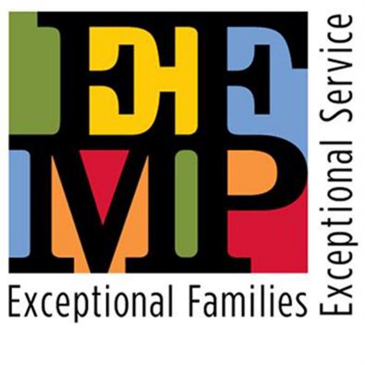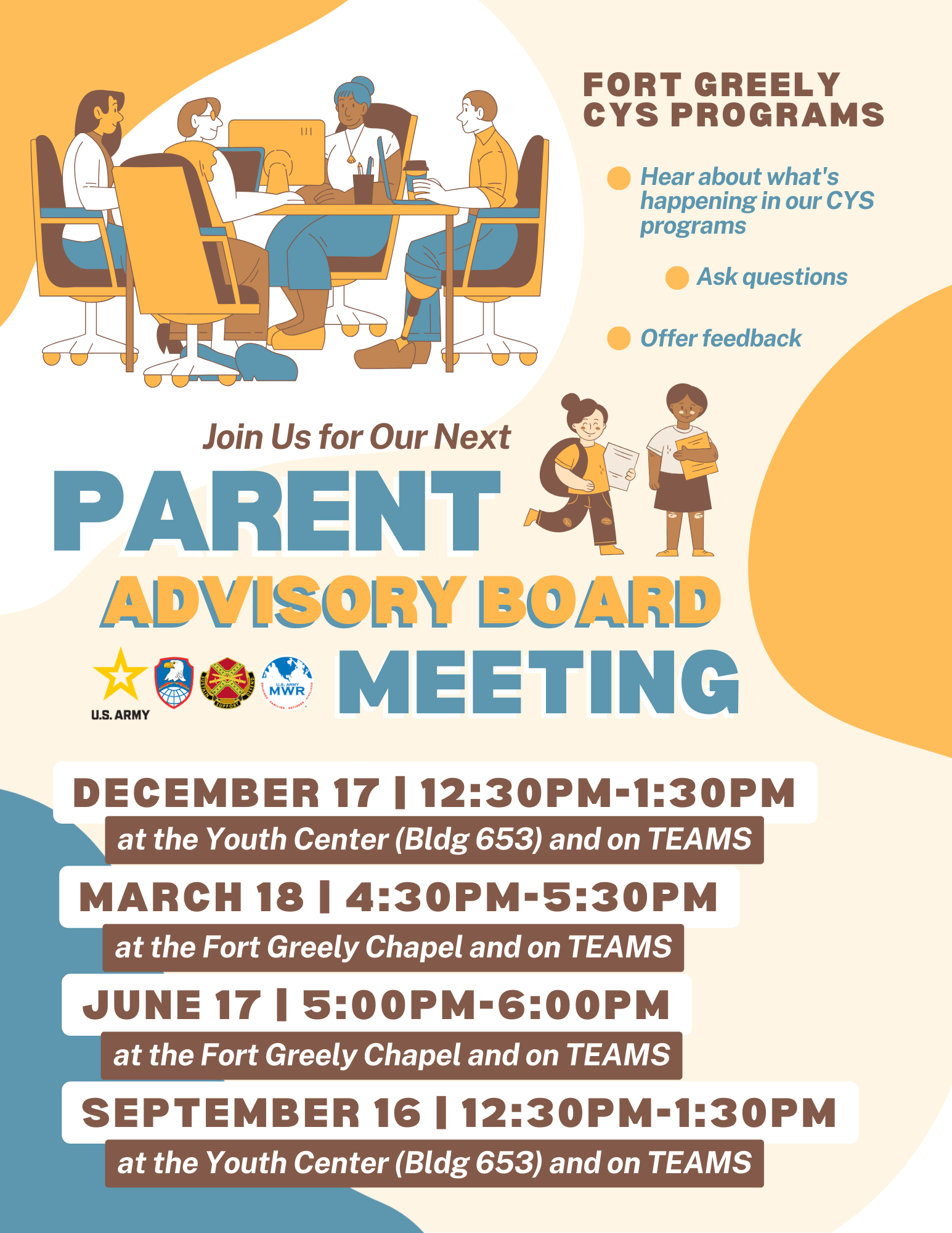- Helping schools understand the challenges military Families face
- Informing parents about local school policies
- Giving Families information about local schools, graduation requirements, after school programs, youth sponsorship and homeschooling
- Connecting units and schools through partnership initiatives
- Conducting workshops to help parents navigate educational transition and advocate for their children
- Providing an array of resources that benefit military youth and improve school experiences
- For Parents & Students
-
For Parents & Students
No matter where you’re stationed, School Support Services is here to help your students achieve all they can in their educational careers. Our School Liaison Officers (SLOs) assist with transitions and help communication between schools, parents, and installations.
What School Support Services offers might vary from post to post, but our commitment to military families and their students is unshakeable. Visit our offices, and you’ll find things like
- College, scholarship and vocational school applications
- Information about careers and other post-secondary opportunities
- Youth Sponsorship opportunities, which give incoming students information, a sense of belonging and the opportunity to make friends quickly
- The Adopt-A-School program, which fosters relationships between parents, units and local schools
- Parent and educator workshops on a variety of transition issues
- Information about Army High School Senior Stabilization, which allows Soldiers to delay PCS so students can complete their senior year of high school
- Free access to www.Tutor.com, which provides online 24/7 academic tutoring to Soldiers and Family members
There’s plenty more at School Support Services, so call or visit us today to find out how we can help you.
Parent FAQs
What is a School Liaison Officer?
A School Liaison Officer (SLO) is your best source of education support – and a completely free benefit to military Families. SLOs work in partnership with installations, local public school districts, private schools, and home school Families to enhance the educational experience for students.
One way we do this is by helping schools understand military challenges, so they’re better able to serve military families. We also give parents detailed information on local schools and educational policies, so they’re better prepared, too.
Perhaps most importantly, our SLOs help connects parents, schools, and installations – and facilitate healthy communication for students’ benefit.
How can my SLO help me determine which school is best for my child?
SLOs are well-versed in current education policies and issues and have established relationships with the local schools. They can provide information on local schools, interpret school information, and explore school options with you.
How can SLOs assist with college and career readiness?
SLOs can provide college readiness workshops to youth and parents. Learn how to make the most out of school tours, prep for the ACT/SAT, apply for financial aid and scholarships, and choose a college. SLOs are a great source for info on local college and career fairs, as well as scholarships, especially for military-connected students.
How can my SLO assist with homeschooling?
SLOs maintain information on local and state policies about homeschooling. They can connect homeschool Families to local homeschool groups and co-ops, and local installation support resources available for homeschool families.
How can SLOs help during deployment?
SLOs inform schools about upcoming unit deployments and how best to support their students and families throughout the deployment cycle. They can help parents communicate with schools about deployment-related absenteeism and other issues. SLOs also connect Families with local resources and agencies that provide deployment-related support.
How can SLOs assist with transition issues?
SLOs have accurate information and powerful resources to assist with the transition. They provide workshops on transition and can discuss specific transition-related concerns with you one-on-one. Your SLO can also help you develop a transition plan and strategies for talking with school staff about concerns.
How can SLOs assist with credit transfer and registration issues?
Your SLO understands the Interstate Compact on Educational Opportunity for Military Children, the agreement that eases transitions for military students, and how it pertains to moving military Families. They can help with school registration and transferring credits. If problems arise, your SLO can help you discuss your concerns with the school and advocate for your child.
How can SLOs assist with school/parent conflict?
SLOs function as liaisons between schools and parents, rather than mediators. They provide accurate information to both schools and parents and can gather resources to help resolve issues.
- When Do I Need a SLO?
-
When should I contact my SLO?
Getting ready to move:
- Information about your upcoming duty station and educational options in your new community
- Connection to a youth sponsor who can answer your child’s questions from a youth’s perspective
- Assistance with the steps to prepare for your children’s departure from their current schools
Once you arrive:
- Assistance with school registration and transition
- Help with questions about compliance and solutions regarding the Interstate Compact on Educational Opportunity for Military Children
- Two-way communication between the school and parent
- Connection with homeschool co-ops or support groups
During your assignment:
- Answers to your questions about schools, homeschooling, special education, scholarships, transitions, and more.
- Parent education opportunities about college and career readiness, preparing for transition and the Interstate Compact
To ease the transition, contact your SLO as soon as you get orders
- Youth Sponsorship
-
Youth Sponsorship Program
When you receive your PCS orders, consider requesting a youth sponsor for your children. The Youth Sponsorship program helps connect youth to their peers during major life transitions like PCS moves. It lets them talk with a child who has first-hand knowledge about the new school and community.
Upon arrival at a new installation, youth sponsors greet new students and orient them to the school and community. The youth center offers a variety of Youth Sponsorship activities, too, with opportunities to make new friends and settle into their new community.
How to become a sponsor or be sponsored
Is your youth energetic, organized, and willing to share? Do they enjoy fostering relationships with other students? They could become a youth sponsor!
Students who've been in the community a while and want to get involved can help their peers – while earning service hours and developing leadership skills.
To learn more or sign up, contact MST at +1(907)873-3405, Bldg. 653 or email:
- MST Director: Nicholya Williams nicholya.williams.naf@mail.mil
- School Liaison Officer: Holly Keller holly.l.keller.naf@mail.mil
Every child wishing to be sponsored will receive an application and be matched with a sponsor with similar interests.
- Special Education Information
-
If you have a child with special needs, we can help you find the resources available in your school district. We can also connect you with your local installation's Exceptional Family Member Program (EFMP) office.

If you have a child with special needs, we can help you find information about the resources available in your school district. We can also help you connect with your local installation's Exceptional Family Member Program (EFMP) office.
- Additional References & Resources for Special Education
-
Highly mobile children are entitled to an expedited process, including: a) evaluations in 30 days instead of 60 days, b) removed delays due to school district schedules for Families moving during incomplete screenings, c) continued Extended School Year for students moving in the summer. The United State Department of Education, Office of Special Education and Rehabilitative Services outlines these requirements for State Directors of Special Education.
The Center for Parent Information and Resources offers parent education, acronyms, tools, webinars and a directory of local Parent and Information Training Centers to appropriately advocate for their children, proactively supporting personal accountability. Funded by OSEP.
Military OneSource has a range of resources in caring for a family member with special needs: education, health care, legal, financial, points of contact (EFMP, School Liaisons, etc.)
Military Community & Family Policy-Office of Special Needs provides directory of age-specific resources and States at a Glance for state education special education resources and parent resources.
DirectSTEP provides no-cost, Army sponsored online training for educators and parents on a host of special education topics such as understanding federal requirements, best practices for behavior management, IDEA eligibility, IEPs and more. Through the eCourses parents and educators learn how to apply education laws in order to obtain positive outcomes associated with critical education issues. Access the course listing and registration page through the links below.
- Transition Support
-
We understand that military transitions for children include much more than school plans and enrollment. We have a number of resources to help make your move as easy as possible for the kids, including:
Military Kids Connect provides online age-appropriate resources to help parents, teachers and children cope with the unique challenges of military life.
The Interstate Compact on Educational Opportunity for Military Children (MIC3) addresses key transition issues military Families experience, including enrollment, placement, attendance, eligibility and graduation. All 50 states have signed the compact and are in varying stages of implementation and/or compliance. The compact applies to children of Active Duty service members, National Guard and Reserve members on active duty orders and members or veterans who are medically discharged or retired within past year.
If you feel that you have an issue that the Compact can help address talk with your SLO. The SLO is able to assist by connecting with both the sending and receiving school to assist in resolving the issue. If it is not possible to resolve the issue locally, the SLO will help you work with the state commission, and if needed, the national office.
- For Educators, School Administrators & Units
-
For Educators, School Administrators & Units
Because living in a military Family challenges students in unique ways, School Support Services provides School Liaison Officers (SLOs) to help. A significant part of their job is helping parents and students, but another part is service to units and schools.
On every post, the SLO is the Garrison Commander’s primary advisor on school-related matters, education initiatives, and education-based legislation at the local, state, and national levels. As the Commander’s representative, the SLO builds partnerships with local schools and facilitates communication between the school, the command, and parents. SLOs are great sources of accurate information and collaborators for solutions that benefit Army Families.
SLOs also serve local schools. They help school personnel appreciate military transition, deployment, and military culture. They also establish Youth Sponsorship and Adopt-A-School programs in schools and can help with the Department of Defense Education Activity grants.
Educator, School Administrator, and Unit FAQs
How do SLOs promote military /community relations?
SLOs are garrison commanders’ primary advisors on all K-12 education-related issues and their representatives in the schools. SLOs help facilitate communication between schools and installation leadership, strengthen school/installation partnerships, and provide schools with access to military resources that support military youth.
How do SLOs assist military Families?
SLOs connect Families to new communities, provide local school information, assist with credit transfer and school registration, and provide accurate information about the transition process.
SLOs also support military Families during deployment by providing resources and access to information and training. They help Families communicate with schools about the deployment process, in addition to deployment-related absenteeism and Family challenges.
The SLO is the primary point of contact on the installation for the youth sponsorship program and can facilitate youth sponsorship assignments for incoming students, too.
What military resources are available to schools?
SLOs inform local schools of upcoming Department of Defense Education grants and facilitate Partnership in Education initiatives to increase parent participation, leadership activities, and overall installation and community involvement in the school. They can also oversee Adopt-A-School programs, which benefit schools, units, and students.
Can SLOs assist with local education issues?
While SLOs cannot change local, state, or national policy, they help make sure stakeholders and decision-makers hear the voice of military families. They also help parents and schools find solutions to challenges associated with the military transition.
How can SLOs help with credit transfer and registration issues?
SLOs can train school staff on the Interstate Compact on Educational Opportunity for Military Children to ensure the school is aware of state legislation to support the compact.
SLOs function as liaisons between parents and receiving and losing schools to ease the transition process and ensure credit transfer and registration happens on-time and according to local, state, and national legislation. They help communicate school requirements to Families and help make sure they have the right documents before meeting with the school.
When should a school contact an SLO?
The school should have continuous contact with the SLO. Invite your SLO to start-of-school-year events, Parent-Teacher Advisory meetings, open houses, staff development days and other events. Please give your SLO the best opportunity to support youth, staff, and parents.
What training does SLOs provide?
The SLO can provide a variety of workshops on military culture, military transition, and deployment for both school staff and parents. They also conduct training on resilience by leveraging the Army’s Ready and Resilient program, and train school personnel on how to establish a Youth Sponsorship program in the school.
What is Youth Sponsorship?
The Youth Sponsorship program connects transitioning military children to their new communities and schools before, during, and after a move. The program gives new students information, a sense of belonging, and the opportunity to make friends.
The program operates at Army youth centers and in schools by assigning a youth sponsor, who provides information, answers questions, and orients the new student to the campus and school environment.
The program also benefits youth sponsors, who build valuable leadership and character skills, practice public speaking, and gain a sense of belonging in the community. The program is youth-run and adult-facilitated and gives students a say in how their communities create a welcoming environment for all new members.
What Partnership in Education initiatives can SLOs assist with?
Army Partnership in Education (PIE) initiatives encompass a range of activities to address the educational needs of military children and youth and to strengthen relationships between schools, installations, and communities.
The SLO is the primary conduit in building relationships that can be leveraged to support initiatives. Relationships should include installation and unit personnel, school personnel, and the civilian community. Initiatives should focus on academic enhancement, workforce preparation, life skills and well-being, citizenship and leadership, school transitions, Family and community involvement, and outreach services.
What is the Adopt-A-School Program?
With Adopt-A-School, Soldiers get personally involved in schools to nurture the intellectual, emotional, social, and physical growth of all children. The program builds partnerships between Army units and local schools to improve education quality and enhance community relations. Schools request a unit to adopt them through their SLO, who helps match installation units to schools.
Can SLOs help with parent/school conflict?
Although they aren’t mediators or advocates for individual Families, SLOs facilitate two-way communication between schools and parents.
Can SLOs assist with disruptive behavior?
SLOs aren’t able to contact parents or intervene with disruptive behavior, but they help in other ways. The SLO can train staff on specific risk factors associated with the military lifestyle and can facilitate communication between the school and parents to help them better understand disruptive behavior and how to address it.
SLOs can help eligible schools obtain a Military Family Life Consultant (MFLC), which can let military children address the reasons for their disruptive behavior. If a school can’t obtain an MFLC, the SLO can connect the Family to an MFLC on the installation.
- Resources
-
Here are some additional web resources to assist you with your child’s education:
Academic Resources:
Tutor.com for U.S. Military Families makes live tutors available online 24/7 to help with more than 40 core subjects and standardized test preparation.
Homework Support: Army Child Youth & School Services provides Homework Labs in before/after school programs for elementary students at the School Age Center, and for middle and high school students at the Youth Center.
A personalized learning resource for all ages Khan Academy offers practice exercises, instructional videos, and a personalized learning dashboard that empower learners to study at their own pace in and outside of the classroom. We tackle math, science, computer programming, history, art history, economics, SAT and more.
Support/Resilience Resources:
School Support Services include information about other programs you can use for support and resilience-related issues.
Military Family Life Counselors (MFLCs) are available to meet in-person on or off the military installation. The free nonmedical sessions are anonymous and may occur in individual, couple, family or group settings. Child Behavioral Specialists are located on the installation in Child, Youth and School Services programs, and in highly impacted schools located on and off the installation.
Military OneSource has access to free nonmedical counseling that’s anonymous and available online, on the phone or in person. Twelve free sessions may occur in individual, couple, family or group settings.
Ready and Resilient Workshops for youth and educators are offered through the SLO and Youth Center programs. These workshops provide educators and students with the same tools Soldiers receive through their Ready and Resilient training. As Master Resilience Trainers SLOs strive to develop a common language around resilience for educators, youth and their parents.
For information on how to attend a class contact your local SLO.
College and Career Readiness Resources:
College and career readiness includes the content knowledge, skills and habits that students must have to be successful in postsecondary education. It also includes training that leads to a sustaining career. A student who is ready for college and career can qualify for and succeed in entry-level, credit-bearing college courses without needing remedial or developmental coursework. These links have tools that will help you plan for your child’s college and career readiness:
Army Educational Outreach Program (AEOP) provides STEM opportunities for military connected youth. The website provides information about AEOP programs available to youth, scholarship opportunities, news, and ways to get involved.
Military.com Scholarship Finder Military.com provides a search engine to help you find money for your child’s higher education needs. Search over 1000 scholarships intended for military youth. They also have a Military Scholarship Handbook.
School Support Services Scholarship Database Listing of crowd sourced scholarships for military connected youth. Scholarships are listed in alphabetical order and provide information on deadlines and qualifications.
Financial Aid
Provides a description of federal student aid programs from the U.S. Dept. of Education and how to apply for them.
Free Application for Federal Student Aid (FAFSA). Apply for federally funded financial assistance for education beyond high school.
Get Ready for College - College Planning, Financial Aid
- Frequently Asked Questions
-
What is a Unique Military Child Identifier? Numerous states have enacted a voluntary report-only self-identification of military children within their public school systems. This data collection would allow monitoring of critical elements such as academic progress and proficiency, special and advanced program participation, mobility and dropout rates. Requirements and method of collection vary from state to state.
Impact Aid
Many local school districts across the United States include within their boundaries parcels of land that are owned by the Federal Government. They must provide a quality education to the children living on the Indian and other Federal lands while sometimes operating with less local revenue than is available to other school districts, because the Federal property is exempt from local property taxes.
Congress has provided financial assistance to these local school districts through the Impact Aid Program. Each year Military members and Federal employees complete a Survey Form. The amount of Impact Aid – or federal assistance –received is determined by the number of eligible parents/guardians who complete the survey form. It partially compensates school districts affected by federal activity for local tax losses resulting from tax-free federal installations.
Impact Aid Fact Sheet (we will provide a hand out to link to)
Impact Aid Website
At overseas/international locations where there is not a Department of Defense Education Activity (DoDEA) school, NDSP supports a variety of options for your children, ranging from public or private schools to homeschool programs. NDSP has a team of education specialists who are available to provide transition and educational support and coordination for all students, including those with special needs. Sponsors are encouraged contact the NDSP as soon as possible for specific school information.
Phone Number +1 (571)372-5863 or +1 (571)372-1897

School Support Services
The military life presents unique challenges to students, and School Support Services (a part of Child & Youth Services, or CYS) can help. Through deployments, PCS moves and the other stresses of growing up in a Military Family, we bring parents, schools, and communities together to help our students.
We provide a wide range of programming, including tutoring services, assistance entering a new school, and Adopt-A-School programs – and it’s all focused on the success of our military families and their students.
Our School Liaison Officers (SLOs) work directly with Families, educators, administrators, and military units to smooth transitions and deliver the best resources to military students. Their services are completely free – so reach out and meet your SLO today.
How do they do it? By




